Marc Emery and the Canada-US marijuana outrage .. can the war on drugs spread north?
Aug 8th, 2005 | By Counterweights Editors | Category: Canadian Provinces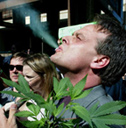 VANCOUVER, Wednesday, August 3, 2005 [UPDATED TO MONDAY, AUGUST 8]. Canada’s so-called “Prince of Pot” Marc Emery, who just might be extradited to the US on drug and money-laundering charges, has now been granted bail (at $50,000) by a BC Supreme Court judge.
VANCOUVER, Wednesday, August 3, 2005 [UPDATED TO MONDAY, AUGUST 8]. Canada’s so-called “Prince of Pot” Marc Emery, who just might be extradited to the US on drug and money-laundering charges, has now been granted bail (at $50,000) by a BC Supreme Court judge.
Emery and his BC Marijuana Party colleagues, Michelle Rainey-Fenkarek and Gregory Williams, have been charged with “conspiring to sell pot seeds to US residents, conspiracy to grow marijuana, and money laundering.” They were arrested last week by Canadian police “at the request of the US Drug Enforcement Agency” (DEA), and “could be sentenced to 20 years in prison if found guilty by an American court.”
The case is riddled with ironies. It is easy to be critical of Marc Emery’s long career as an anti-government activist. His right-wing libertarian instincts annoy the left-wing counter-establishment in Canada, which should otherwise stand aghast at the clear-enough attack on Canadian sovereignty in his latest troubles. At the same time, Canadian right-wing commentators who are more friendly towards the present US administration have their own problems with Emery’s mindless libertarianism (despite the very big talk about freedom and democracy that sometimes resounds in Washington these days).
Yet whatever you think about Marc Emery, the US DEA’s attempt to spread the poisonous public philosophy of its irrational and neanderthal war on drugs north of the unfortified border could only be a big step backwards, in both Canada and the United States. Teresa Tarasewicz, who bought Emery’s London, Ontario bookstore when he left for points west in the early 1990s, has aptly summarized the key points: “He’s a pawn in the politics of drug enforcement between the two different countries … It’ll be interesting to see whether Canada holds fast or hands him over.”
Where was Marc Emery born?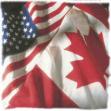
The first thing many Canadians wonder about Marc Emery is whether he is a US citizen. If he is, then the US DEA’s effort to have him extradited, to stand trial in Seattle, may make a little more sense.
In that case at least the DEA request doesn’t seem quite such a blatant assault on Canadian sovereignty – heavy with the increasingly unapologetic imperialism of the country that spends the most on military might, and remains a decisive sparkplug for the world economy. And there are people in Canada right now who will tell you that Marc Emery is a US citizen.
Yet this is not easy to confirm on any quick rummage through the top-ranked pages of relevant sources on the Net. According to Answers.com, e.g., Emery was born in 1959 (it doesn’t say just where), and “lived in London, Ontario during the 1970s and 1980s.”
This may be open to the interpretation that Marc Emery was born some place other than London, Ontario, and even in the USA. But according to the Cannabis Culture website (which is based in Vancouver, and would seem somehow associated with Emery himself): “Long before he got involved in marijuana, Emery was always an activist for social justice and civil liberties. In 1975, at the age of 16, he opened a bookstore in his hometown of London, Ontario, which he ran for 18 years before coming west to British Columbia.”
Emery as a freedom fighter in southwestern Ontario
 Even if Marc Emery was born in London, Ontario, some will say that this is at least closer to the USA than many other parts of Canada, and in more than one sense. Emery’s London bookstore, e.g, was called “City Lights” – it would seem after the more famous City Lights Bookstore in San Francisco, long linked with the Beat generation poet Lawrence Ferlinghetti, and many noble freedom crusades in northern California.
Even if Marc Emery was born in London, Ontario, some will say that this is at least closer to the USA than many other parts of Canada, and in more than one sense. Emery’s London bookstore, e.g, was called “City Lights” – it would seem after the more famous City Lights Bookstore in San Francisco, long linked with the Beat generation poet Lawrence Ferlinghetti, and many noble freedom crusades in northern California.
 During his more than a decade and a half as owner-operator of the City Lights Bookshop in southwestern Ontario (also the homeland of the writer Alice Munro), Emery went on to assorted freedom crusades of his own. He was an authentic child of the gospel of participatory democracy in the North America of the 1960s. And in the 1970s and 1980s he became a small businessman and grass-roots politician – a breed that has always flourished somewhat in modern Canada (however you want to define that).
During his more than a decade and a half as owner-operator of the City Lights Bookshop in southwestern Ontario (also the homeland of the writer Alice Munro), Emery went on to assorted freedom crusades of his own. He was an authentic child of the gospel of participatory democracy in the North America of the 1960s. And in the 1970s and 1980s he became a small businessman and grass-roots politician – a breed that has always flourished somewhat in modern Canada (however you want to define that).
To kick things off, Emery dropped out of high school to get his bookstore moving. Then he got involved in local politics. London, Ontario today stills remembers that he became “well-known in this city for his various campaigns. As owner of City Lights, he wanted the downtown business improvement area organization dismantled and fought its right to levy a charge on his store.”
 In 1984 Marc Emery and a gentleman called Robert Metz founded the Freedom Party of Ontario – a kind of Ayn-Rand-inspired organization that still exists. (It unsuccessfully ran candidates in about a quarter of all constituencies in the most recent Ontario provincial election of October 2, 2003.) Emery and Metz also “started two-short lived newspapers – the London MetroBulletin and the London Tribune.” Metz apparently “once said in describing Emery’s philosophy in life … If you want to change the law, you have to be prepared to break the law.'”
In 1984 Marc Emery and a gentleman called Robert Metz founded the Freedom Party of Ontario – a kind of Ayn-Rand-inspired organization that still exists. (It unsuccessfully ran candidates in about a quarter of all constituencies in the most recent Ontario provincial election of October 2, 2003.) Emery and Metz also “started two-short lived newspapers – the London MetroBulletin and the London Tribune.” Metz apparently “once said in describing Emery’s philosophy in life … If you want to change the law, you have to be prepared to break the law.'”
Emery’s own account of his formative years in southwestern Ontario fills out the picture a little more: “During this time I did dozens of freedom crusades … That was the whole idea of the bookshop; to allow me to forward all sorts of unusual civil rights and individual liberties issues that no one else seemed to do … For two years I went out four or five nights a week to distribute pamphlets in the city, to get people against a tax-paid sports event … I was also constantly defending variety stores that sold explicit literature. I sold the banned 2 Live Crew CD …”
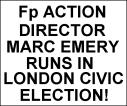 At one point Emery broke Ontario’s now-abolished frontier-puritanical “laws banning shopping on Sundays for eight straight weeks.” He was finally incarcerated for refusing to pay the resulting fines, but got “out of jail after four days … because I was getting too much publicity.” There was even a hint of his later career out west. He “tried to get charged for selling banned marijuana literature from his bookstore. I gave away High Times magazine in front of the police department. Hundreds of people rallied to get charged for that, but we didn’t. They refused to charge me.'” (Later on, in Vancouver, his track record here would improve.)
At one point Emery broke Ontario’s now-abolished frontier-puritanical “laws banning shopping on Sundays for eight straight weeks.” He was finally incarcerated for refusing to pay the resulting fines, but got “out of jail after four days … because I was getting too much publicity.” There was even a hint of his later career out west. He “tried to get charged for selling banned marijuana literature from his bookstore. I gave away High Times magazine in front of the police department. Hundreds of people rallied to get charged for that, but we didn’t. They refused to charge me.'” (Later on, in Vancouver, his track record here would improve.)
The Prince of Pot on Canada’s Pacific Coast
 Something in the early 1990s convinced Marc Emery that he was due for a change himself.
Something in the early 1990s convinced Marc Emery that he was due for a change himself.
In the Great Lakes region of Canada (and the United States), as elsewhere, there was a fresh bout of economic hard times. In 1990 the allegedly semi-socialist New Democratic Party of Ontario won 57% of the seats in the provincial legislature, with a mere 38% of the province-wide popular vote (in a three-party contest marked by especially strange but quite legal electoral arithmetic).
And then Emery was approaching his own mid 30s, in private life. For whatever exact reasons, in 1992 he sold his City Lights Bookshop in London, in southwestern Ontario, to Teresa Tarasewicz, and took off for the south seas in Indonesia.
At some point on an extended meditation abroad (and entranced in some medical marijuana mist?), he seems to have come up with the Prince of Pot formula, that would finally raise his career as a grass-roots freedom-fighter for democracy in North America to its ultimate heights.
In 1994 Marc Emery returned to Canada, but settled this time in the bigger city of Vancouver, BC, in the northern lotus land on the Pacific Northwest coast. Here he slowly but surely “became known for his pot activism.” He “started the Cannabis Cafe, a meeting place for marijuana smokers, Hemp BC, a supply store, and Little Grow Shop, a seed and plant outlet.”
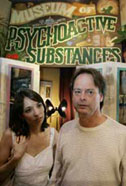 These places “were raided a few times and eventually closed” by the Vancouver police. But Emery’s allied work “selling marijuana seeds on the Internet” seems to have prospered mightily enough, and without decisive official obstruction. He is said to have “made more than $2 million from the business.” (According to one source in the media. Others say $3 million, and on the Sunday, August 7 evening Global TV news the number was put as high as $5 million. The Global TV estimate appeared as part of an interview with Marc Emery himself, currently out on bail. This interview did seem to suggest that Emery had lately been making a nice living from his pot business.)
These places “were raided a few times and eventually closed” by the Vancouver police. But Emery’s allied work “selling marijuana seeds on the Internet” seems to have prospered mightily enough, and without decisive official obstruction. He is said to have “made more than $2 million from the business.” (According to one source in the media. Others say $3 million, and on the Sunday, August 7 evening Global TV news the number was put as high as $5 million. The Global TV estimate appeared as part of an interview with Marc Emery himself, currently out on bail. This interview did seem to suggest that Emery had lately been making a nice living from his pot business.)
Emery is also said to have used at least some of the money from his Internet pot business to promote the cause of reform in marijuana laws, in both Canada and the United States … This could go on and on, but you can sample the highlights in …
- transcript of a 1997 CNN Program on Marc Emery’s good or bad works (depending on your point of view)
- some 2003 blog comments on how Emery is a great guy but don’t buy his marijuana seeds … they’re pricey and not very good
- how law enforcement officials in Canada as well as the United States have been irked by Emery, leading to his three months in a Saskatchewan jail in 2004
- Emery’s genuinely weird views on subjects other than marijuana law reform, as displayed during the recent 2005 BC provincial election campaign.
Say what you like, extraditing Marc Emery to Seattle certainly will show that Canada is not all that serious about being a real country of its own …
Two somewhat disturbing (if well-crafted and all that) items about Marc Emery’s current troubles have appeared in Canada’s self-proclaimed national newspaper out of Toronto over the past week. Both suggest a troubling willingness in at least some influential strains of Canadian opinion at the moment to lose the obvious fundamental focus on this important enough issue.
JOHN IBBITSON ON AUGUST 3
The first item is an August 3 column by the always interesting John Ibbitson, called Marc Emery has only himself to blame. The essential flavour here is more or less as follows:
“Although Canadian law-enforcement officials have been turning a myopic eye to Mr. Emery’s marijuana seed business, the Americans are not so sanguine … and American prosecutors are asking that Mr. Emery be extradited to the United States for trial.
“Critics assert that the Americans have no right to violate Canadian sovereignty by using our police forces as their patsies, especially when the offence is, in Canadian eyes, picayune. But while a court of justice will ultimately decide Mr. Emery’s guilt or innocence before the law, in the court of public opinion, he should be found guilty as sin.
“Mr. Emery is an eloquent exponent of legalizing the use of marijuana, for which there is a very strong case. He has every right to make that case, and if he can make a buck by selling marijuana seeds, more power to him. Canadian jurisprudence and police attitudes toward the business are ambivalent. To that extent, Mr. Emery’s defenders have a point.
“But he allegedly sold his seeds to American customers. In fact, it appears they made up the bulk of his business. Once you knowingly send something across a border, you become subject to the laws on the other side of the border …
“Should a Canadian citizen be sent to face Draconian punishments in another country for something that is only technically a crime here? … any reluctance to hand over Mr. Emery will confirm American suspicions that, on everything from grow-ops to crystal-meth labs, Canadians cannot be trusted in the war on drugs. Should we jeopardize Canada-U.S. relations to protect a man who repeatedly and publicly tests the limits of the law?.”
John Ibbitson is always interesting and some times actually right, but this is certainly not one of them. One shudders to think what any rigorous application of the principle “Once you knowingly send something across a border, you become subject to the laws on the other side of the border” might mean for the global village at large today.
And surely if the present administration in Washington – which has lately also been called corrupt more than once inside its own borders – does have some serious objection to Internet marijuana seed sales into the US from Canada, the proper remedies parallel those already in motion in the case of Internet prescription drug sales into the US from Canada.
For the US DEA to insist on Marc Emery’s extradition to Seattle, to stand trial in a US court for serious crimes under US law that are effectively not serious crimes in Canada is quite clearly nothing less than an imperialist (there is no just other word for it) assertion of US sovereignty beyond its own borders. And not just Canada, but Mexico, the Carribean, Greenland (er …Denmark, that is?), and no doubt a great many other parts of the world as well have an interest in seeing Canada staunchly resist this assertion.
Even for sensible people of all parties in the United States, extraditing Marc Emery to Seattle will only push the already palpably dysfunctional and even ridiculous current US federal war on drugs north of the unfortified border – and thus stiffen its poisonous and irrational grip inside the US homeland and all that. And note that at least 11 States of the Union have already decriminalized marijuana in one degree or another – as Canada is expected to do federally at some point over the next while, perhaps once the furor over gay marriage has died down a bit?
(According to greater Los Angeles street talk, to take just one case in point here, in California you can now get a state medical marijuana certificate from obliging doctors for as little as $300. So it’s not just in Canada that the US DEA is having trouble with its demonstrably bad and irrational policy on marijuana, which is almost certainly less dangerous than Prozac or perhaps even Viagara? So is Canada actually going to be less sovereign than California – which already pretends to tell the world it is a republic itself, on its state flag?)
It is not altogether encouraging in this context that, as John Ibbitson also reported in his August 3 column, in Canada today: “Perhaps because he knows that a political storm will surround Mr. Emery’s extradition, Justice Minister Irwin Cotler was nowhere to be found yesterday, and his staff refused to return calls. The minister will have a tough decision.”
Here again, Mr. Ibbitson, as talented a journalist as he undoubtedly is, is just plain wrong. It is not a tough decision at all. In the end there is no other decision for Mr. Cotler and his party to make, if they ever expect even to come close to winning another federal election in Canada, among other things. Whatever you might think of Marc Emery – and however much he may richly deserve a stronger kick in the behind from law enforcement authorities than he usually gets in the true north (if that actually is your opinion), he simply cannot be extradited to Seattle.
That really would just confirm to the rest of the world that Canada is not a separate country in its own right. (And if this happens what family refuge will Americans have, when they inadvertently elect dysfunctional administrations in Washington, as sometimes does seem to happen?) It is disturbing, or at least distressing, that someone as brilliant as John Ibbitson will only acknowledge all this (if at all?) between the lines of his story.
(And stop worrying about whether we should “jeopardize Canada-U.S. relations to protect a man who repeatedly and publicly tests the limits of the law.” President Bush has already made it clear to London, England journalists that even the UK’s active support for the US in the mis-conceived Iraq War does not mean that the US will be doing the UK any favours anywhere else. That is not how the present administration in Washington does business in any case.)
JANE ARMSTRONG ON AUGUST 6
Jane Armstrong’s August 6 background report on Marc Emery – entitled Crusader, drug lord, martyr or huckster? – is more of a descriptive profile than any explicit political argument. And it is very good and quite interesting, in several respects.
But it also quietly seems to promote the thought that, when push comes to shove, Mr. Emery is probably just not worthy of Canadian protection from the “Draconian punishments” of current US federal drug law. (When that is not the issue at all, from the standpoint of either the deepest values of freedom and democracy everywhere, or the Canadian future.)
Ms. Armstrong reports that: “Nearly everywhere Mr. Emery has lived or worked, he has left a trail of fuming police officers and bureaucrats.” But, she goes on: “Like many a class clown,” he “may have gone too far … This time, he has infuriated the powerful U.S. Drug Enforcement Administration. Unlike Canadian authorities, who have long turned a blind eye to his illegal cannabis ventures, U.S. prosecutors do not find his life’s work the least bit tolerable.
“To them, he is a drug lord, and last year they sent undercover drug officers to Canada to pose as customers. Now they want to take him back to the United States and put him on trial. Mr. Emery faces charges of conspiracy to distribute cannabis seeds, produce marijuana and launder money. If convicted, he could be sentenced to life in prison … He might need a superhero of his own to get out of this jam.“
Ms. Armstrong also notes that: “Those who have known the activist for years are not surprised that he has found himself in trouble with U.S. drug officials … He alienated as many people as he attracted,’ said Tara Tarasewicz, who bought Mr. Emery’s London bookstore, City Lights, in 1992. He’s unrestrained in an intelligent sort of way.’ “
Again, this is all beside the point. Regardless of how bizarre, narcissistic, and unreasonable Marc Emery may be, he is one of the legitimate creations of the unique free and democratic society we have in Canada. The present duly elected mayor of Vancouver also supports legalizing marijuana in Canada, and he has recently been appointed to the federal Senate in Ottawa by Prime Minister Paul Martin. Marc Emery has done nothing that truly offends the great majority of Canadians, and under current Canadian law on marijuana, in theory and practice, he has not done anything at all that would even remotely qualify him for being “sentenced to life in prison.”
It is simply outrageous that the US DEA has requested his extradition, and no one in Canada should even be contemplating the prospect that this might actually happen. Beyond human interest, there is nothing more to be said, politically, period.
(And this is true even if the ultimate greatest irony of this story may be that, if Marc Emery did in fact live and work in the United States, he would probably vote for George W. Bush. He is, it seems clear enough, an essentially right-wing small businessman and grassroots political activist, who believes in freedom and even free enterprise above all else. It is “irrational exuberance” of the highest order for the present US federal administration to be suddenly persecuting him the way it is. And it does make you wonder just where in the world we are going nowadays in North America. Now is no doubt another good time for Canadians to show that they are in fact the last true Americans, and keep Marc Emery legally as far away from Seattle as possible.)
UPDATE MAY 2006: Readers of this article may be interested in a new website called Growing Marijuana. It’s a discussion board dedicated to helping users cultivate Marc Emery’s favourite plant.
JULY 29-AUGUST 2: PLACES THAT DON’T EXIST … Back in the USSR … Canadian provinces … and other summer madness …
 In an earlier era the Canadian Broadcasting Corporation, to help make time for staff holidays, showed some excellent BBC TV programs during the summer. (Though if you can still remember the classic Z Cars from the mid 1960s, you are certainly getting old.)
In an earlier era the Canadian Broadcasting Corporation, to help make time for staff holidays, showed some excellent BBC TV programs during the summer. (Though if you can still remember the classic Z Cars from the mid 1960s, you are certainly getting old.)
Something of the tradition has been revived in the summer of 2005, to good effect. On the evening of July 26, e.g., CBC Newsworld ran the last of five episodes in a BBC-produced series called Holidays in the Danger Zone: Places That Don’t Exist. The tour guide here is “Simon Reeve, the charismatic author who first alerted the world to al-Qaeda.” As in his earlier Holidays in the Danger Zone: The Stans, the still quite young Mr. Reeve conveys fresh and intriguing news about assorted big and small pictures in the global village today.
 Places That Don’t Exist explores five different “breakaway states” in Asia, Africa, and the former Soviet Union. None are “recognized by the international community.” But they are all nonetheless up and running, in one way or another. And on a hot night in the middle of the summer, some Canadian viewers are almost bound to think of, say, Quebec – and conceivably even Alberta or Newfoundland, and then possibly every other province too?
Places That Don’t Exist explores five different “breakaway states” in Asia, Africa, and the former Soviet Union. None are “recognized by the international community.” But they are all nonetheless up and running, in one way or another. And on a hot night in the middle of the summer, some Canadian viewers are almost bound to think of, say, Quebec – and conceivably even Alberta or Newfoundland, and then possibly every other province too?
Meanwhile, the July 26 issue of the Globe and Mail in Toronto also included obituaries on two local historians. Their subject was the past of the current largest Canadian metropolis, still often thought to have the most interest in keeping all the provinces together. This of course may or may not actually be true. But somehow it all seems … well, interesting enough …
Simon Reeve on Places That Don’t Exist
 Without wanting to sound chauvinistic in any way, one compelling feature of Simon Reeve’s approach to reporting on unusual nooks and crannies in the global village is his habit of finding cute (and very politically well-informed) local young ladies, to provide in-depth background.
Without wanting to sound chauvinistic in any way, one compelling feature of Simon Reeve’s approach to reporting on unusual nooks and crannies in the global village is his habit of finding cute (and very politically well-informed) local young ladies, to provide in-depth background.
This doesn’t always work. In CBC Newsworld’s fifth episode of Places That Don’t Exist on July 26, viewers had to be content with somewhat grimy young men to explain the details of breakaway state building in Nagorno-Karabakh, in southwestern Azerbaijan.
For the CBC Newsworld episode on July 25, however, young Mr. Reeve did manage to find the sort of local informant he likes best – to report on the mysteries of Trans-Dniester or “Transnistria” – a “narrow strip of land between the Dniester river and the Ukrainian border,” which “proclaimed independence from Moldova in 1990.”
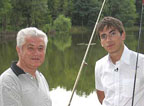 (Which itself had formerly been a part of the Soviet Union or USSR. And here is what it says on Moldova in the CIA World Factbook: “Formerly part of Romania, Moldova was incorporated into the Soviet Union at the close of World War II. Although independent from the USSR since 1991, Russian forces have remained on Moldovan territory east of the Dniester River supporting the Slavic majority population, mostly Ukrainians and Russians, who have proclaimed a “Transnistria” republic. The poorest nation in Europe, Moldova became the first former Soviet state to elect a Communist as its president in 2001.”)
(Which itself had formerly been a part of the Soviet Union or USSR. And here is what it says on Moldova in the CIA World Factbook: “Formerly part of Romania, Moldova was incorporated into the Soviet Union at the close of World War II. Although independent from the USSR since 1991, Russian forces have remained on Moldovan territory east of the Dniester River supporting the Slavic majority population, mostly Ukrainians and Russians, who have proclaimed a “Transnistria” republic. The poorest nation in Europe, Moldova became the first former Soviet state to elect a Communist as its president in 2001.”)
The passionate and well-informed local young lady who helped guide Simon Reeve and the rest of us around Transnistria (and parts of the adjacent Moldova proper, so to speak) was endearing as well as suitably easy enough on the eyes. And full of a certain almost unbearable sadness which was not hard to understand.
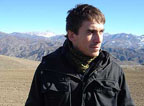 As the BBC website explains: “In the post World War II carve-up of the region, Moscow created Moldova’s forerunner, the Moldavian Soviet Socialist Republic, from two disparate elements: the mainly Russian-speaking Dniester region, formerly an autonomous part of Ukraine, and the neighbouring region of Bessarabia, which had been part of Romania from 1918-1940 … But in the Soviet Union’s dying days, alarm grew in the Dniester region over growing Moldovan nationalism and the possible reunification of Moldova with Romania. A 1989 law which made Moldovan an official language added to the tension, and Trans-Dniester proclaimed its secession on 2 September 1990 … The breakaway territory’s paramilitary forces took over Moldovan public institutions in the area in 1991. Fighting intensified, culminating in a battle on the right bank of the Dniester in June 1992. Up to 700 people were killed in the conflict … A ceasefire was signed in July 1992, and a 10-km demilitarised security zone was established. The settlement was enforced by the Russian 14th Army forces already stationed in Trans-Dniester.”
As the BBC website explains: “In the post World War II carve-up of the region, Moscow created Moldova’s forerunner, the Moldavian Soviet Socialist Republic, from two disparate elements: the mainly Russian-speaking Dniester region, formerly an autonomous part of Ukraine, and the neighbouring region of Bessarabia, which had been part of Romania from 1918-1940 … But in the Soviet Union’s dying days, alarm grew in the Dniester region over growing Moldovan nationalism and the possible reunification of Moldova with Romania. A 1989 law which made Moldovan an official language added to the tension, and Trans-Dniester proclaimed its secession on 2 September 1990 … The breakaway territory’s paramilitary forces took over Moldovan public institutions in the area in 1991. Fighting intensified, culminating in a battle on the right bank of the Dniester in June 1992. Up to 700 people were killed in the conflict … A ceasefire was signed in July 1992, and a 10-km demilitarised security zone was established. The settlement was enforced by the Russian 14th Army forces already stationed in Trans-Dniester.”
Provinces That Don’t Exist in Canada
 Happily the ultimate weapon for aspiring breakaway states in Canada today is the ballot box and not guns. Even so, there remain a few intriguing parallels.
Happily the ultimate weapon for aspiring breakaway states in Canada today is the ballot box and not guns. Even so, there remain a few intriguing parallels.
Simon Reeve’s Places That Don’t Exist, that is to say, help you see at least one thing more clearly. Traditional “nationalism,” for want of better words, is so often just another form of “regionalism,” and under the right (or wrong?) circumstances it can have some very fine grains. On a hot summer night it doesn’t take much imagination to see similar geographically clustered political, economic, social, cultural, and even psychological interests at work, in such much more ostensibly new and pristine places as Canada – or even the adjacent United States.
 Quebec is of course the most obvious case in point. Simon Reeve just might have included an interesting episode on Quebec in his Places That Don’t Exist series. (And historically this case did have at least a tinge of guns etc. Some of us are alas old enough to still remember when Pierre Trudeau invoked the War Measures Act, after the so-called “October Crisis” of 1970 – which included the kidnapping of the British consul in Montreal, and the murder of a Quebec provincial cabinet minister.)
Quebec is of course the most obvious case in point. Simon Reeve just might have included an interesting episode on Quebec in his Places That Don’t Exist series. (And historically this case did have at least a tinge of guns etc. Some of us are alas old enough to still remember when Pierre Trudeau invoked the War Measures Act, after the so-called “October Crisis” of 1970 – which included the kidnapping of the British consul in Montreal, and the murder of a Quebec provincial cabinet minister.)
In form Quebec in the summer of 2005 remains a province of Canada. Its two so-called sovereignty referendums of 1980 and 1995 (neither of which was exactly about the secession of Quebec from Canada in any case) have failed – even if the Oui side did come very close to a bare majority in 1995. Yet down on the ground who can doubt that since the late 1960s Quebec has made it very clear that it really is not, and is not going to be, a “province like the others”?
 Through an assortment of bold actions – by both so-called sovereigntist and federalist provincial governments – Quebec has acquired: its own Quebec Pension Plan, separate from the Canada Pension Plan which covers the other provinces; stiff provincial legislation to promote the use of French as the majority language inside the borders of Quebec; deft use of Quebec Pension Plan funds to promote French-language Quebec business interests; and on and on. For more than a generation the Quebec provincial legislature has been officially known as the National Assembly (or more exactly, L’Assemble nationale).
Through an assortment of bold actions – by both so-called sovereigntist and federalist provincial governments – Quebec has acquired: its own Quebec Pension Plan, separate from the Canada Pension Plan which covers the other provinces; stiff provincial legislation to promote the use of French as the majority language inside the borders of Quebec; deft use of Quebec Pension Plan funds to promote French-language Quebec business interests; and on and on. For more than a generation the Quebec provincial legislature has been officially known as the National Assembly (or more exactly, L’Assemble nationale).
It is also true enough that there increasingly do seem to be good reasons to believe that this late 20th century Quebec “sovereigntization” process is approaching some natural limit in the summer of 2005.
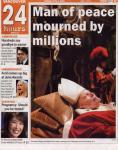 Consider, e.g., the new free commuter daily 24 Hours, now available in such places as Toronto and Vancouver, and a property of the Quebec francophone business enterprise, Quebecor Inc – “a communications company with operations in North America, Europe, Latin America and India. Its operating subsidiaries are engaged in commercial printing, cable services, newspapers, broadcasting, music, books, videos, business telecommunications, interactive marketing and Internet portals.”
Consider, e.g., the new free commuter daily 24 Hours, now available in such places as Toronto and Vancouver, and a property of the Quebec francophone business enterprise, Quebecor Inc – “a communications company with operations in North America, Europe, Latin America and India. Its operating subsidiaries are engaged in commercial printing, cable services, newspapers, broadcasting, music, books, videos, business telecommunications, interactive marketing and Internet portals.”
In Toronto Quebecor has taken over the Toronto Sun – last flagship of a fading right-wing British North American populism from a bygone era. In Vancouver 24 Hours is “published by the Jim Pattison Group, and Quebecor’s Sun Media.”
Ironically or otherwise, the Quebec sovereigntist movement has among other things inspired a new and more vigorous francophone business class in Canada. The growing wider interests of this new business class are not going to be helped by the creation of some altogether independent Quebec national state in North America, with its own armed forces, postage stamps, and whatnot.
 The cause of some kind of united English and French Canada arguably looks brighter lately than it has for several decades at least.
The cause of some kind of united English and French Canada arguably looks brighter lately than it has for several decades at least.
And yet Simon Reeve’s places-that-don’t-exist point does remain as well. As the recently liberated Ontario murderess Karla Homolka has shrewdly understood (and used to her own advantage), Quebec nowadays really is a world unto itself. It has finally become a kind of country that does not quite exist, or only exists as an unusual and unique province of Canada, or something like that – but that is nonetheless very much alive, and thriving after its own unique fashion.
Whatever else, that too remains yet another important political truth to contend with, down on the ground. History still “has many cunning passages,” as the poet has said – all around the global village. (And now what about Alberta or Newfoundland or even Ontario, to say nothing of California, Texas, or New Mexico?)
Goodbye to two local historians of Canada’s largest metropolis …
 What all this – and many other parallel if rather still different changes in virtually all Canadian provinces – might mean for Canada’s present largest and still very largely anglophone metropolis in Toronto no doubt remains unclear. (Though note that when Quebecor’s Sun Media took 24 Hours into Vancouver, it did join forces with the Pacific Canadian Jim Pattison Group.)
What all this – and many other parallel if rather still different changes in virtually all Canadian provinces – might mean for Canada’s present largest and still very largely anglophone metropolis in Toronto no doubt remains unclear. (Though note that when Quebecor’s Sun Media took 24 Hours into Vancouver, it did join forces with the Pacific Canadian Jim Pattison Group.)
In Toronto down on the ground at the moment it is also a very agreeable summer day outside. And much hard work remains to prepare for a long weekend up in the near wilderness of the true north. It is probably more than enough in any case just to effectively reprint the obituaries for two local historians in the July 26 Globe and Mail.
 The first concerns Ms. Edith Firth, and largely explains itself: “Edith Firth studied history before she became a librarian. She combined those disciplines as a writer and archivist compiling volumes of early Toronto documents that were invaluable to historians and other scholars who were trying to write about the beginnings of Canada’s biggest city.
The first concerns Ms. Edith Firth, and largely explains itself: “Edith Firth studied history before she became a librarian. She combined those disciplines as a writer and archivist compiling volumes of early Toronto documents that were invaluable to historians and other scholars who were trying to write about the beginnings of Canada’s biggest city.
“Born in Lindsay, Ont., on Jan. 27, 1927, she grew up in North Bay. After earning degrees in modern history and library science from the University of Toronto, she joined the staff of the Toronto Public Library working first in general reference and later rare books. She became head of the manuscript collections in The Baldwin Room and The Toronto Room in the early 1960s. She published a number of guides and catalogues including Early Toronto Newspapers 1793-1867, The Town of York, 1793-1815 and Toronto in Art. She died in Toronto on July 23. She was 78.”
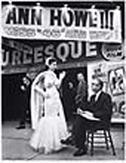 The second obituary involves the writer Robert Thomas Allen, who apparently died on July 26 in 1990 and was simply being remembered again in the newspaper for that date in 2005. The published remembrance does not mention his early 1960s book When Toronto Was For Kids. But this also stands out as an invaluable contribution to the history of modern Toronto.
The second obituary involves the writer Robert Thomas Allen, who apparently died on July 26 in 1990 and was simply being remembered again in the newspaper for that date in 2005. The published remembrance does not mention his early 1960s book When Toronto Was For Kids. But this also stands out as an invaluable contribution to the history of modern Toronto.
Bob Allen (as his colleagues in the local media and advertising industries knew him) grew up in Toronto between the two world wars of the 20th century. When Toronto Was For Kids is his light-hearted memoir of the city in the 1920s and 1930s. It is still probably the single best thing to read if you really want to know what Toronto was like way back then – and yearn to discover yet another strange place that no longer quite exists.
In any event here is more or less what appeared in the Globe and Mail:
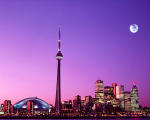 “Robert Thomas Allen, 1990 … Tuesday, July 26, 2005 … Writer born in Toronto in 1911 … After beginning his career in the advertising departments of Eaton’s and Simpsons, he began writing full-time and contributed regularly to magazines such as Maclean’s, Saturday Night, The Canadian, Weekend and The Star Weekly. Over the years, he steadfastly maintained an almost gypsy independence, leaving Canada in the winters to live in Florida with his family, and zigzagging across the continent in a $400 Chevrolet. In 1957, he won his first Stephen Leacock Award for humour for his book, The Grass is Never Greener. He won another in 1971 for Children, Wives and Other Wildlife. A Christmas story called I’m Looking for the Man We Celebrate that appeared in The Canadian Home Journal netted him the Governor General’s Award in 1956. He produced 14 books, many of them collections of his humorous essays. He died in San Bernardino Calif … Dates may not coincide exactly.”
“Robert Thomas Allen, 1990 … Tuesday, July 26, 2005 … Writer born in Toronto in 1911 … After beginning his career in the advertising departments of Eaton’s and Simpsons, he began writing full-time and contributed regularly to magazines such as Maclean’s, Saturday Night, The Canadian, Weekend and The Star Weekly. Over the years, he steadfastly maintained an almost gypsy independence, leaving Canada in the winters to live in Florida with his family, and zigzagging across the continent in a $400 Chevrolet. In 1957, he won his first Stephen Leacock Award for humour for his book, The Grass is Never Greener. He won another in 1971 for Children, Wives and Other Wildlife. A Christmas story called I’m Looking for the Man We Celebrate that appeared in The Canadian Home Journal netted him the Governor General’s Award in 1956. He produced 14 books, many of them collections of his humorous essays. He died in San Bernardino Calif … Dates may not coincide exactly.”

